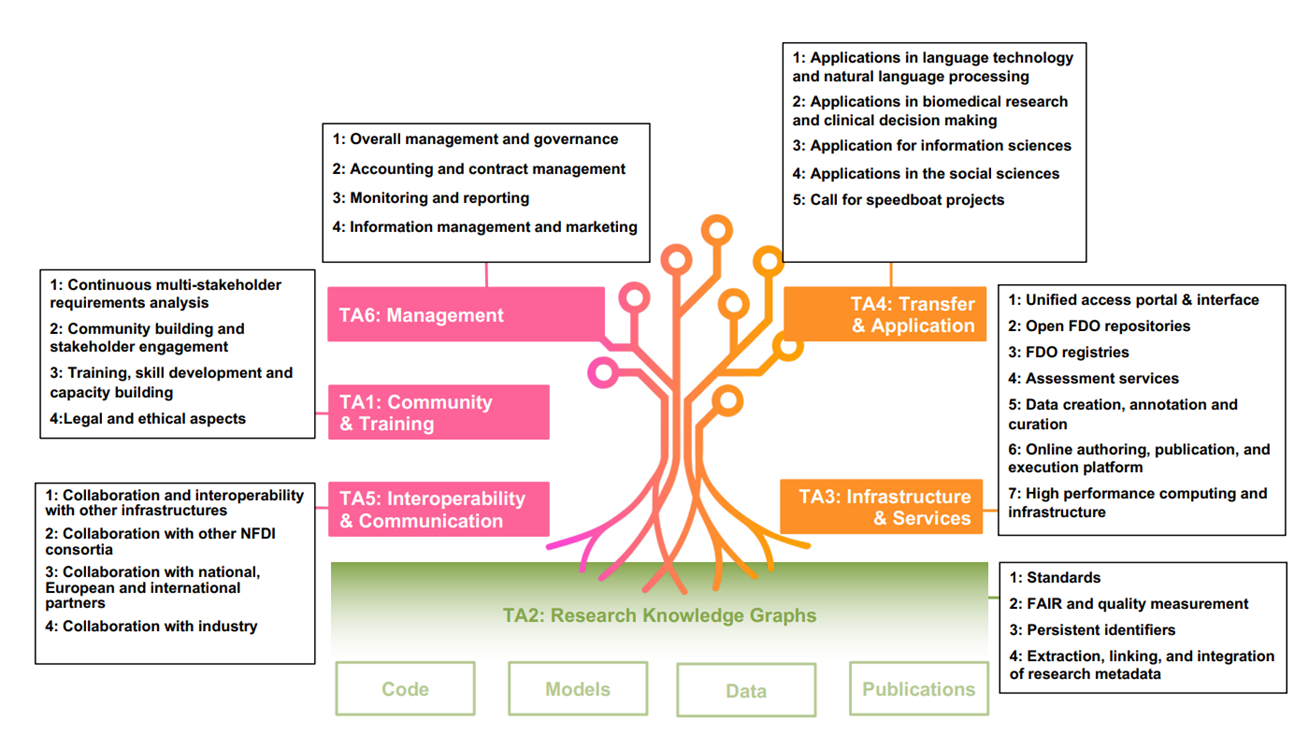The vision of NFDI4DataScience (NFDI4DS) is to support all steps of the complex and interdisciplinary research data lifecycle in Data Science and Artificial Intelligence.
The past years have seen a paradigm shift, with computational methods increasingly relying on data- and often deep learning-based approaches, leading to the establishment of Data Science as a discipline driven by advances in the field of Computer Science. Transparency, reproducibility and FAIRness have become crucial challenges for Data Science and Artificial Intelligence due to the complexity of Data Science methods, often relying on a combination of code, models and data. NFDI4DS will promote FAIR and open research data infrastructures supporting all involved digital artifacts such as code, models, data, or publications through an integrated approach.
The overarching objective of NFDI4DS is the development, establishment, and sustainment of a national research data infrastructure for the Data Science and Artificial Intelligence research community. The key idea is to work towards increasing the transparency, reproducibility and fairness of projects, by making all digital artifacts available, interlinking them, and offering additional tools and services.
NFDI4DS will represent the Data Science and Artificial Intelligence research community in Germany, which is an interdisciplinary field rooted in Computer Science. In the initial phase, NFDI4DS will focus on application areas: language technology, biomedical research, information sciences and social sciences.
